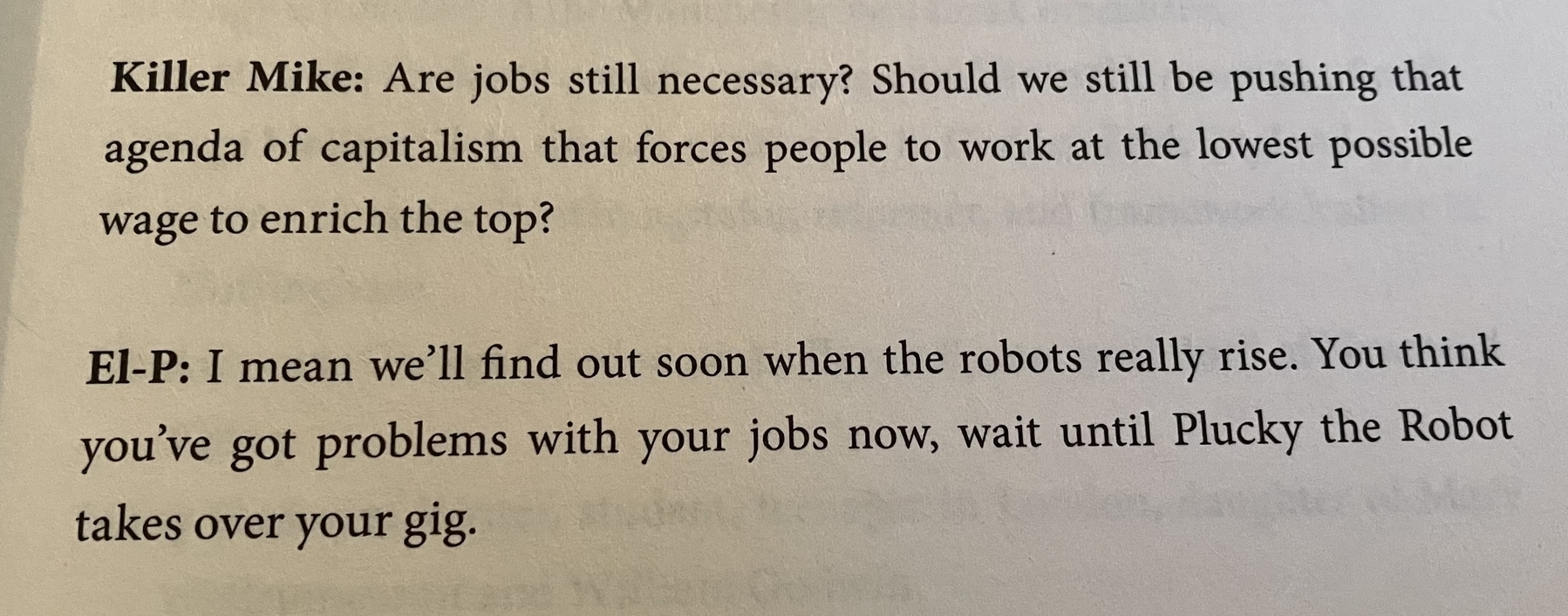My local writing group’s prompt this month was to write about a dream. It’s a fiction-focused group but I’m far more comfortable with and interested in nonfiction. Nevertheless, I wrote about my favorite dream and drew on the ideas of James Hillman. So here’s my essay-pretending-to-be-a-story.
History may move in cycles–but this moment in time feels like a stuck record.
Wherever power is, the corrupt will be drawn to it by an irresistible magnetic force. So the only answer is to reduce the scope of power everywhere. That’s why I’m drawn to anarchism.
Precisely this. I see anarchism as necessary for our survival. The only way to a truce in our political and cultural wars is to lower the stakes by spreading power so thinly that no one can gain enough to blow up the world.

So Blood in the Machine starts with an epigraph from Run the Jewels? Dude, I’ve already bought the book—you don’t have to keep winning me over.

Cory Doctorow reviews Blood in the Machine, a forthcoming history of the Luddites. I’ve had it on pre-order since the day I heard about it. 📚
Rachel made persimmon drop cookies!

Indiana persimmon—straight off the ground and warm—an absolute delight.
Powerful song by Derek Spencer on a real life tragedy in small town Kentucky. This guy deserves more attention than he’s gotten. 🎵

Happy Hobbit Day! Unfortunately I won’t have as much time for celebrating today but I will certainly have this music playing in the background.